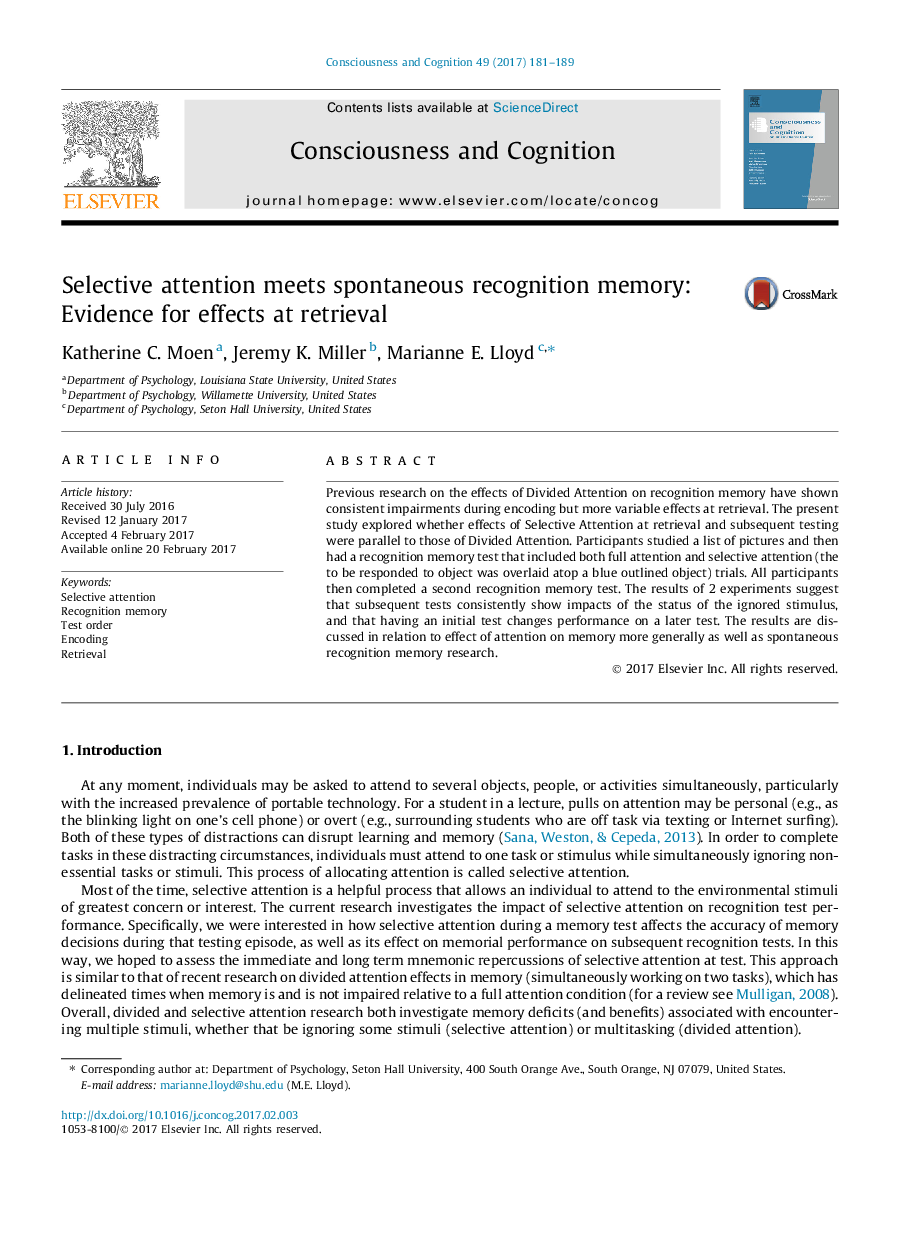| Article ID | Journal | Published Year | Pages | File Type |
|---|---|---|---|---|
| 5041869 | Consciousness and Cognition | 2017 | 9 Pages |
â¢Full attention performance is better than selective attention performance on an initial test.â¢The order of attention condition during a recognition memory test (full attention test first or second) changed performance.â¢Responding during a selective attention trial with a target flanker increases “yes” responses on subsequent tests.â¢Ignored background items are being processed to some degree.
Previous research on the effects of Divided Attention on recognition memory have shown consistent impairments during encoding but more variable effects at retrieval. The present study explored whether effects of Selective Attention at retrieval and subsequent testing were parallel to those of Divided Attention. Participants studied a list of pictures and then had a recognition memory test that included both full attention and selective attention (the to be responded to object was overlaid atop a blue outlined object) trials. All participants then completed a second recognition memory test. The results of 2 experiments suggest that subsequent tests consistently show impacts of the status of the ignored stimulus, and that having an initial test changes performance on a later test. The results are discussed in relation to effect of attention on memory more generally as well as spontaneous recognition memory research.
